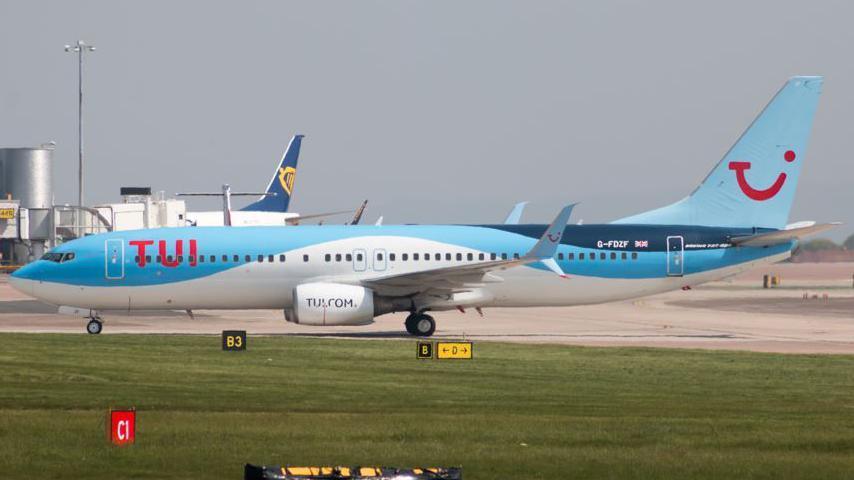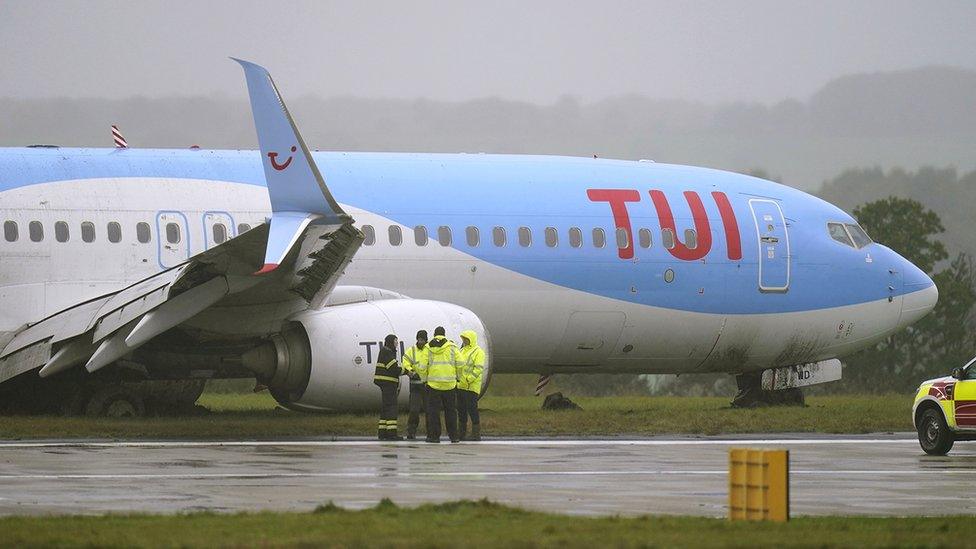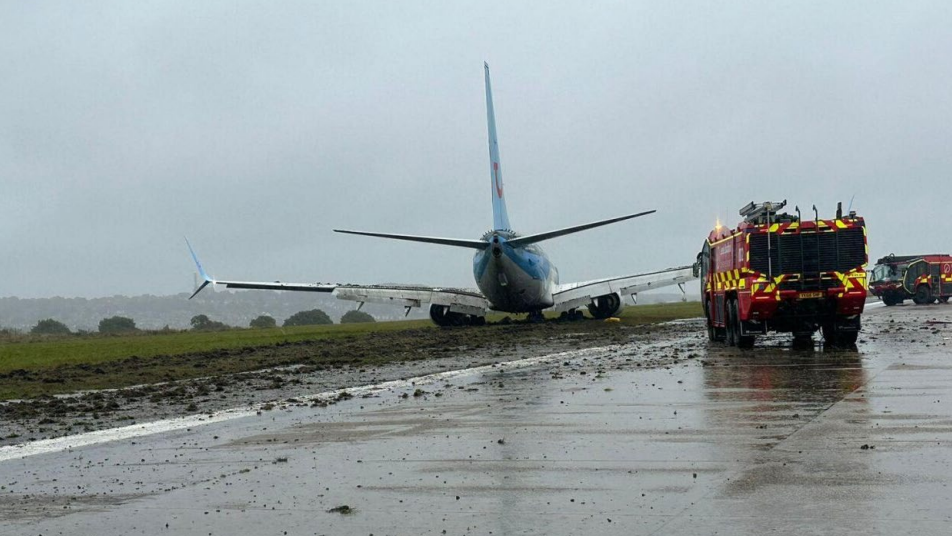Blunder led to TUI flight being aborted in mid air

The aircraft, similar to the one pictured, was forced to return to Manchester Airport
- Published
A TUI plane with 193 people on board did not pressurise after engineers failed to turn switches back on following maintenance, an investigation has found.
The Boeing 737-8K5 took off from Manchester Airport for Kos, Greece, on 17 October 2023, but only got as far as northern Lincolnshire before the pilot was ordered to abort.
The Air Accidents Investigation Branch (AAIB) found both pilots failed to spot the oversight during checks and did not complete protocols when alerted.
The jet returned to Manchester, with no injuries reported, but investigators said it was likely those on board "were exposed to a progressive hypoxia risk". The BBC has contacted TUI for comment.
Just three days later, the same aircraft veered off the runway at Leeds Bradford Airport during Storm Babet, with a "catastrophic failure" of a nosewheel bearing ruled as the cause.
According to a report into the incident over Lincolnshire, external, the aircraft departed "with the engine bleed air system off" because the switches had been "incorrectly left off following maintenance activity" the night before.
The switches were also not turned on during pre-flight checks.
"The after take-off checklist is designed to trap the latter omission, but the incorrect switch selection went undetected by the crew," the report states.
Oxygen masks
The engineer who had carried out the work told AAIB investigators they thought the switches had been returned to the "on" position after the work had been completed.
A second engineer also failed to detect the incorrect switch position.
As a result, the aircraft failed to pressurise, the report states, and the crew did not complete prescribed drills from a Quick Reaction Handbook (QRH) in response to a cabin altitude warning, "which remained illuminated for 43 minutes".
A QRH contains checklists, including how to respond to a "non normal" event. The cabin altitude checklist includes "immediate use of oxygen masks".
The pilot turned both switches to "on" and "continued to climb", the report states.
A further warning was activated, prompting the pilot to stop the climb and seek advice from bosses on the ground.
The decision was made to return to Manchester Airport, with the "situation explained to the passengers over the public address system", the report states.
Investigators noted that had the aircraft, which was carrying six crew members and 187 passengers, continued to climb, the passengers' oxygen masks would have deployed automatically at 14,000ft (4,267m).
The likelihood of loss of consciousness below 14,000ft is "very small" for those without significant medical conditions, the report states.
However, "cognitive performance and decision-making" could be affected at this altitude, it adds.
Listen to highlights from Lincolnshire on BBC Sounds, watch the latest episode of Look North or tell us about a story you think we should be covering here, external.
Related topics
Related internet links
- Published21 October 2023

- Published24 October 2024
